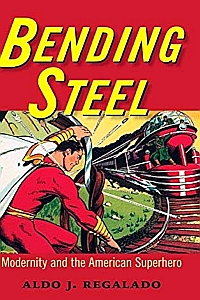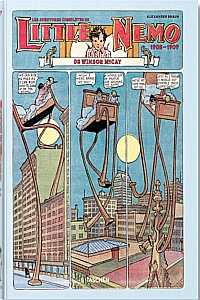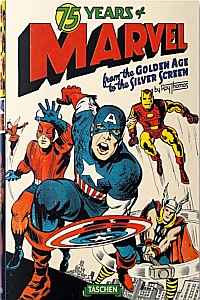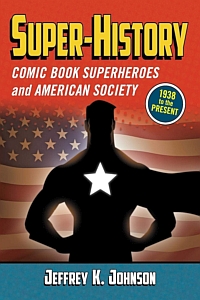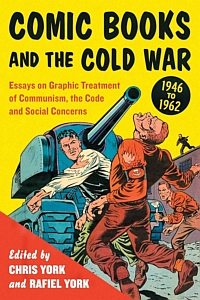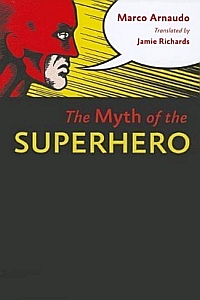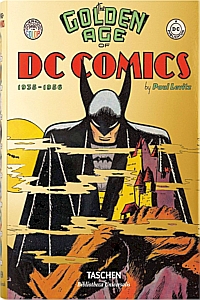By examining interviews, trade magazines and even testimonies, letters, memoirs and other personal data author Regalado seeks direct impact of the superheroes on the real lives of actual people. Or rather, he aims to find out just how “the big forces of American modernity shaped the lives of Americans on an individual level and how […]
You are browsing archives for
Category: Comic Book Culture
Winsor McCay. The Complete Little Nemo by Alexander Braun (ed.) (2014)
Not just comic art fans but any student of popular culture or architecture will be delighted by this edition. Winsor McCay’s inventions of perspective, his psychedelic and fantastic renderings of breath-taking strange environments are presented here for the first time ever in the complete edition containing all (really every one!) 549 episodes of Little Nemo, […]
75 Years of Marvel Comics. From the Golden Age… by Roy Thomas and Josh Baker (2014)
After two big books on DC Comics, Taschen presents a heavy, heavy book on the other major name in comic publishing: Marvel Comics. Both publishers together dominate the US comic book market, approximately up to 80 percent of all superhero comics sold come from these two big players. The book on 720(!) pages commemorates not […]
Comic Book Crime: Truth, Justice … by Nickie D. Phillips and Staci Strobl (2013)
Since superhero comic books often display in their stories characters, settings, possible problems and wishful thinking of their readers, even if the location is on another planet, it is only natural that also a sense of justice and the following punishment as felt by the readers is transported through the action heroes. There is a […]
Super-History. Comic Book Superheroes and American Society… by Jeffrey K. Johnson (2012)
There are many ways to describe and finally explain not only the evolution of the comic book superhero but find causes and reasons for their change, adjustment and complete modification throughout superhero history. As World War II historian Jeffrey K. Johnson unfolds very carefully, there is mostly one explanation why the colorful superheroes changed with […]
The Silver Age of DC Comics by Paul Levitz (2013)
If this is your first book of Taschen’s DC chronicles of the comic ages you may feel comfortably transported back in time. To the years between 1956 and 1970 to be exact, when after some stagnation in the Super Hero “business” new impulses started a fresh age. And with another BANG! this hardcover book continues […]
Comic Books and the Cold War, 1946-1962… by Chris and Rafiel York (eds.) (2012)
The comic books of the post WWII years differ in many respects from their predecessors. For one reason, they (generally) invented new dangers, new villains and new challenges for the keepers of the peace, fighters for freedom and justice, aka the Superheroes and the Federal Agents, the T-Men, a moniker for government agents of the […]
The Myth of the Superhero by Marco Arnaudo (2013)
When the comic artists of Marvel, DC Comics and other inventors of superheroes, avengers and their allies equipped with supernatural powers or technical gadgets designed their unique subjects, they had – willingly or not – a number of models to build a legend around: Greek, Jewish, Roman, or Nordic mythology. While each superhero is equipped […]
The Golden Age of DC Comics 1935-1956 by Paul Levitz (2013)
Shazzamm! Phew!! This is one absolutely stunning edition of the early days of DC Comics. That is, if you are interested in the history, the concepts, the authors, the many inventors and most of all the legacy of the great comic artists at DC Comics. Then the heavy volume may just be what you have […]

